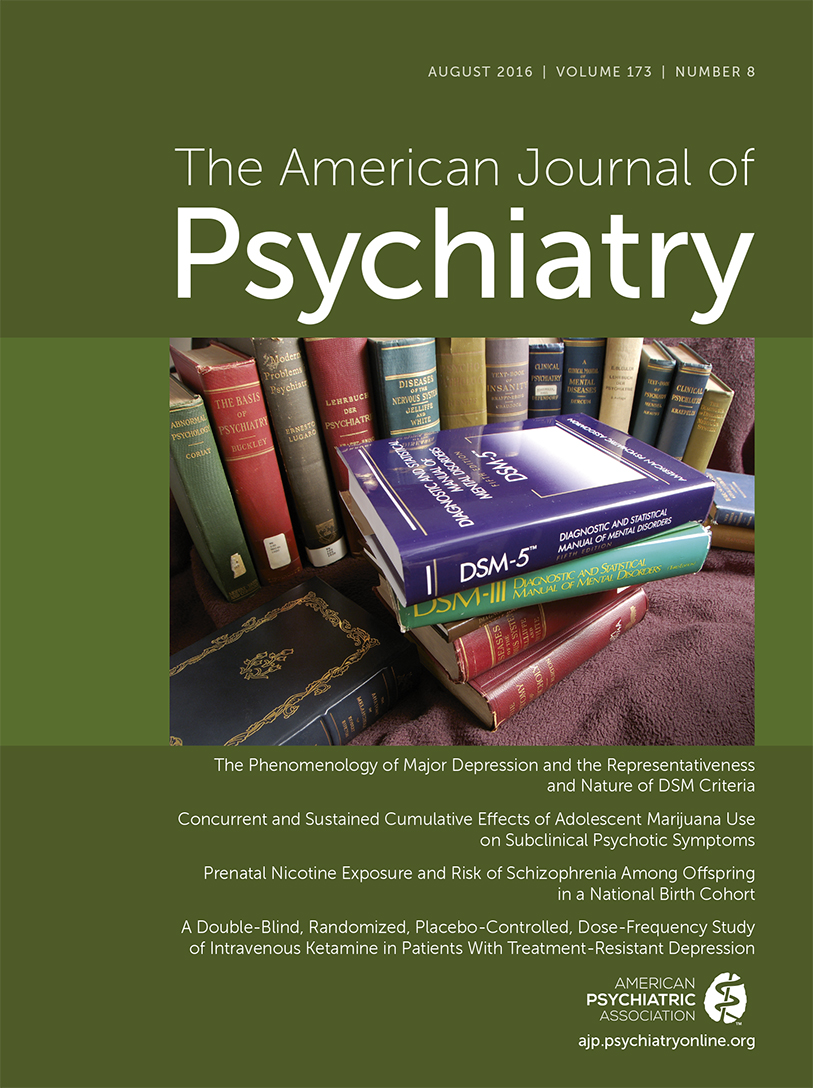Prenatal Nicotine Exposure and Risk of Schizophrenia Among Offspring in a National Birth Cohort
Abstract
Objective:
Cigarette smoking during pregnancy is a major public health problem leading to adverse health outcomes and neurodevelopmental abnormalities among offspring. Its prevalence in the United States and Europe is 12%–25%. This study examined the relationship between prenatal nicotine exposure (cotinine level) in archived maternal sera and schizophrenia in offspring from a national birth cohort.
Method:
The authors conducted a population-based nested case-control study of all live births in Finland from 1983 to 1998. Cases of schizophrenia in offspring (N=977) were identified from a national registry and matched 1:1 to controls on date of birth, sex, and residence. Maternal serum cotinine levels were prospectively measured, using quantitative immunoassay, from early- to mid-gestation serum specimens archived in a national biobank.
Results:
A higher maternal cotinine level, measured as a continuous variable, was associated with an increased odds of schizophrenia (odds ratio=3.41, 95% confidence interval, 1.86–6.24). Categorically defined heavy maternal nicotine exposure was related to a 38% increased odds of schizophrenia. These findings were not accounted for by maternal age, maternal or parental psychiatric disorders, socioeconomic status, and other covariates. There was no clear evidence that weight for gestational age mediated the associations.
Conclusions:
To the authors’ knowledge, this is the first study of the relationship between a maternal smoking biomarker and schizophrenia. It provides the most definitive evidence to date that smoking during pregnancy is associated with schizophrenia. If replicated, these findings suggest that preventing smoking during pregnancy may decrease the incidence of schizophrenia.



